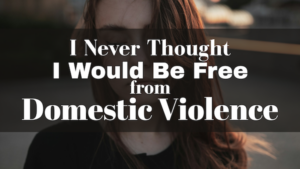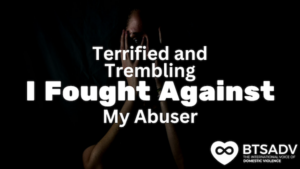By Mikayla S
At Break the Silence Against Domestic Violence (BTSADV), we understand that the issues surrounding domestic violence and child custody are complex and deeply troubling. Recent reports indicate that abusing a child’s mother constitutes a severe form of psychological and emotional abuse that must be seriously considered in custody decisions. This article delves into the nuances of custody and visitation disputes within the context of domestic violence and offers insights into the legal landscape surrounding these issues.
The Impact of Domestic Violence on Custody Decisions
When children are born to mothers who have experienced intimate partner violence (IPV), critical periods arise that necessitate careful consideration by courts and other professionals involved in custody determinations. Research shows that the psychological and emotional impact of abuse on mothers extends to their children, and judges must be informed to make the best decisions regarding custodial rights during this crisis【Jaffe & Gaffner, 1998】.
Unfortunately, the prevailing societal attitudes often revictimize survivors of domestic violence. We tend to categorize these crimes as “social problems,” leading to skepticism toward the accounts of survivors while giving undue credence to the denials and justifications offered by male offenders. Studies indicate that courts frequently overlook the physical and mental risks posed to both mothers and their children when making custody decisions. Victims of IPV are often denied the protection they need, and offenders are granted visitation or custody despite their abusive histories.
Flaws in the Family Court System
Many recent studies reveal a disturbing trend: judges often rely on the recommendations of mental health professionals, guardians ad litem, and mediators to determine visitation rights for abusive fathers. Unfortunately, these recommendations can compromise the safety of IPV victims and their children. Evaluators frequently assume that visitation should be permitted under all circumstances, leaving survivors vulnerable and unprotected【Fields, 2008】.
In January 2024, a new law in Colorado (HB23-122) was enacted to address these critical issues. This law mandates municipalities prosecuting domestic violence cases to adopt ordinances that offer protections to victims, aligning with the Colorado Victim Rights Act. Such measures aim to provide survivors with access to necessary safety resources for themselves and their children【Reinke, 2023】.
The Risks to Children of Abused Mothers
Judges and magistrates must understand that continued exposure to an abusive parent can significantly jeopardize a child’s health and safety. Research shows that children of women who have been abused are at high risk of being victimized themselves. Approximately half of all children of battered women are abused by their mothers’ abusers, leading to severe mental and physical health issues. Furthermore, children exposed to IPV during pregnancy are at risk for adverse outcomes, such as preterm labor and low birth weights.
A study published in PubMed Central highlighted alarming statistics regarding family court decisions in domestic violence cases. Among 39 examined cases, 21 involved state actors who recommended or granted physical custody to men who had previously committed violence against the mothers or their children. Disturbingly, a significant majority of these cases included documentation of IPV, yet judges still awarded custody to the abusers【Silverman et al., 2004】.
The Need for Reform
The findings surrounding the intersection of domestic violence and child custody necessitate immediate legislative attention. The family court system often fails to protect the rights and well-being of battered women and their children, undermining the principles of human rights and equal protection under the law. Judges frequently disregard evidence of IPV and fail to investigate child abuse allegations, which directly contradicts the Convention on the Rights of the Child, which mandates protections for children against abuse.
The family courts must acknowledge the severity of these issues and take meaningful steps toward reform. Guardian ad litem and other family court staff must exercise due diligence, thoroughly consider documentation of IPV, and prioritize the safety of both mothers and children when making custody recommendations.
Conclusion
At BTSADV, we advocate for a systemic overhaul of the family court system to ensure that the rights of domestic violence survivors and their children are upheld. The current legal landscape presents significant challenges for those affected by IPV, but with awareness, advocacy, and reform, we can work toward a safer future for families. It is time to hold the family court system accountable for its failures and prioritize the best interests of children and their protective parents. Together, we can break the silence surrounding domestic violence and create meaningful change. #BTSADV #DomesticViolence #ChildCustody #IntimatePartnerViolence
Sources:
Fields, M. D. (2008). Getting Beyond “What Did She Do to Provoke Him?” Violence against
Women, 14(1), 93–99. https://doi.org/10.1177/1077801207311866
Jaffe, P., & Gaffner, R. (1998). APA PsycNet. Psycnet.apa.org.
https://psycnet.apa.org/record/1997-36896-011
Reinke, K. (2023, October 30). New Colorado law will give domestic violence survivors more
rights in municipal court. 9news.com. https://www.9news.com/article/news/local/new-
state-law-domestic-violence-survivors-municipal-court/73-64772706-3da6-468d-8c31-
3834e103123d
Silverman, J. G., Mesh, C. M., Cuthbert, C. V., Slote, K., & Bancroft, L. (2004). Child Custody
Determinations in Cases Involving Intimate Partner Violence: a Human Rights Analysis.
American Journal of Public Health, 94(6), 951–957.
https://www.ncbi.nlm.nih.gov/pmc/articles/PMC1448371/









